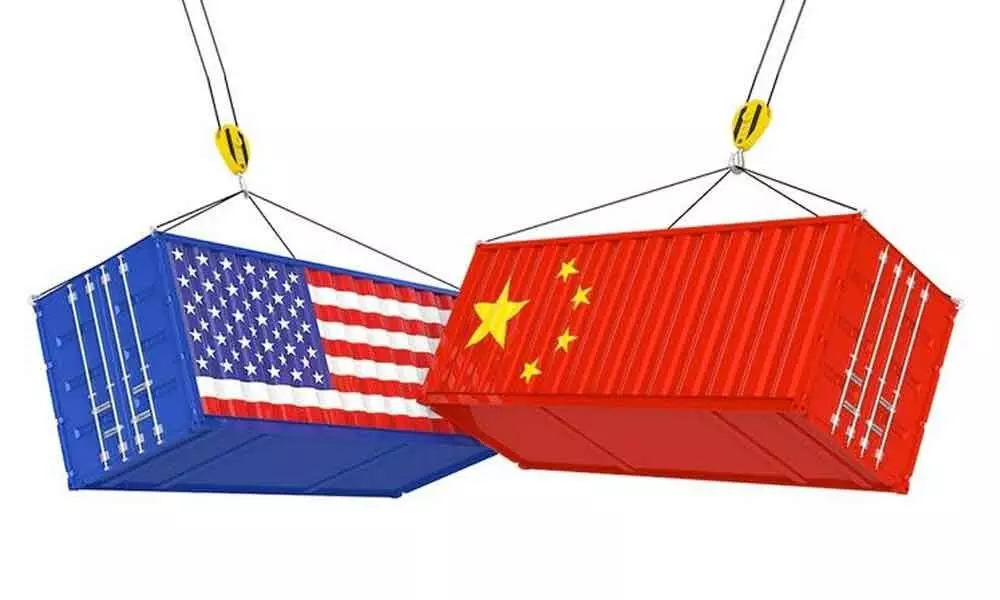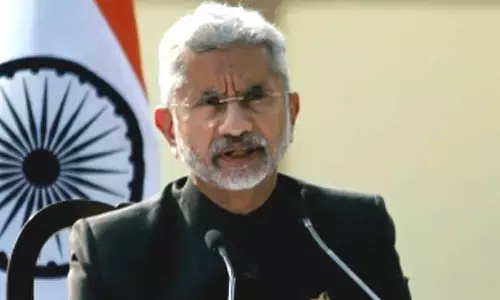Is the world headed for Cold War 2?

Is the world headed for Cold War 2?
Is the world headed for Cold War 2 more than three decades after the collapse of the Soviet Union?
Is the world headed for Cold War 2 more than three decades after the collapse of the Soviet Union? The contours were first visible just before the outbreak of the coronavirus pandemic in a bitter trade war that erupted between the US and China and seemed to have taken a backseat as the world struggles to control the spread of the virus. However, US President Joe Biden's remarks backing NATO and QUAD to control China has again stoked the fires of what could happen in the 'new normal'.
Five years after he wrote "Pisoners of Geography" that showed how every nation's choices are limited by mountains, rivers, seas and concrete, Tim Marshall is a leading authority on foreign affairs with more than 30 years of reporting experience, in its sequel, "The Power of Geography" (Simon & Schuster), says that since then, the geography hasn't changed, but the world has. "It is apparent that we have entered deep into a 'multi-polar' era.
This means the world's second-tier powers have more room to act independently of the major powers, especially as there is no 'world policemen' as there was during the Cold War. I believe we will eventually head back into a form of Cold War, this time between China and the USA," Marshall told IANS in an interview.
"It won't be the same as the previous one, but there will be similar pressures to choose sides. (India successfully resisted such pressures in the Soviet/USA era, but this time the geography of the new competition means India will probably not be as 'non-aligned' in the future.) So, I wanted to look at the geography of some second-tier countries/regions and how that influences not only their current behaviour in this multi-polar world, but also what role they might play in a future Cold War. It's clear, for example, that the UK and Australia have made their choice and will stick with the Americans," Marshall added.
Some of it was looking back at his own experiences in the regions (other than the chapter on Space of course). "The basis though is starting with the geography of the subject -- which way do its rivers flow, where are the borders, what are its ports like, what are the demographics, etc. Then a study of history and current affairs, supplemented with interviews with experts in the region," he explained, detailing the 10 regions -- Australia, The Sahel, Greece, Turkey, the UK, Iran, Ethiopia, Saudi Arabia, Spain and Space -- that are likely to shape global politics and power.
"All countries and regions in some way influence current affairs, but not all could be covered in the space of one book. Australia is interesting not just because of its size, but because it's a clear example of how geography constrains a country's ability to increase the size of its population, given that so much of it is uninhabitable.
It is also the best example of a country making its choice ahead of the coming Cold War competition. "Iran and Saudi Arabia are both being impacted by the slow withdrawal of the USA from the Middle East as it pivots towards the Indo-Pacific region, and both countries also have their own domestic challenges to balance against this. The UK was an obvious choice because of Brexit. Greece and Turkey have entered into a period of intense competition for gas and oil in the Adriatic Sea.
"The Sahel region was chosen because the problems created by colonialism, climate change, poverty, violent Islamism, conflict and migration are all coming together, making it a very volatile region. Ethiopia is in because technology may finally allow it to harness the power of the Blue Nile and alleviate poverty, but that is causing tensions with its neighbours. Finally, Space is there because I believe it is a geographic area over which there will be competition and cooperation in the future, and it is important to prepare for that," Marshall elaborated.
Marshall was diplomatic editor at Sky News, and before that was working for the BBC and LBC/IRN radio. He has reported from 40 countries and covered conflicts in Croatia, Bosnia, Macedonia, Kosovo, Afghanistan, Iraq, Lebanon, Syria and Israel. He is the author of the Sunday Times bestseller "Prisoners of Geography: Ten Maps that Tell You Everything You Need to Know About Global Politics" and the founder and editor of the current affairs site TheWhatandtheWhy.com.
"I was lucky enough to report from as many as 40 countries and learn about different peoples and cultures. What I learned is that although different people can think in different ways, which are sometimes hard to follow, at heart we are all the same. I also learned early on that peace is fragile, that there are always a few people with ill intent who will seek to provoke tensions between others in order to profit from it.
Sadly, we are susceptible to anxieties about the 'other'. "It has given me a somewhat 'realist' hardline approach to international relations and has also persuaded me of Churchill's truth that democracy is the least worst political system by which to organize societies," Marshall concluded.














